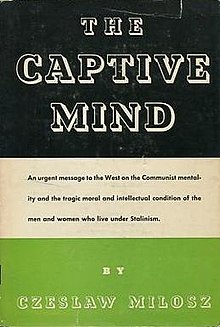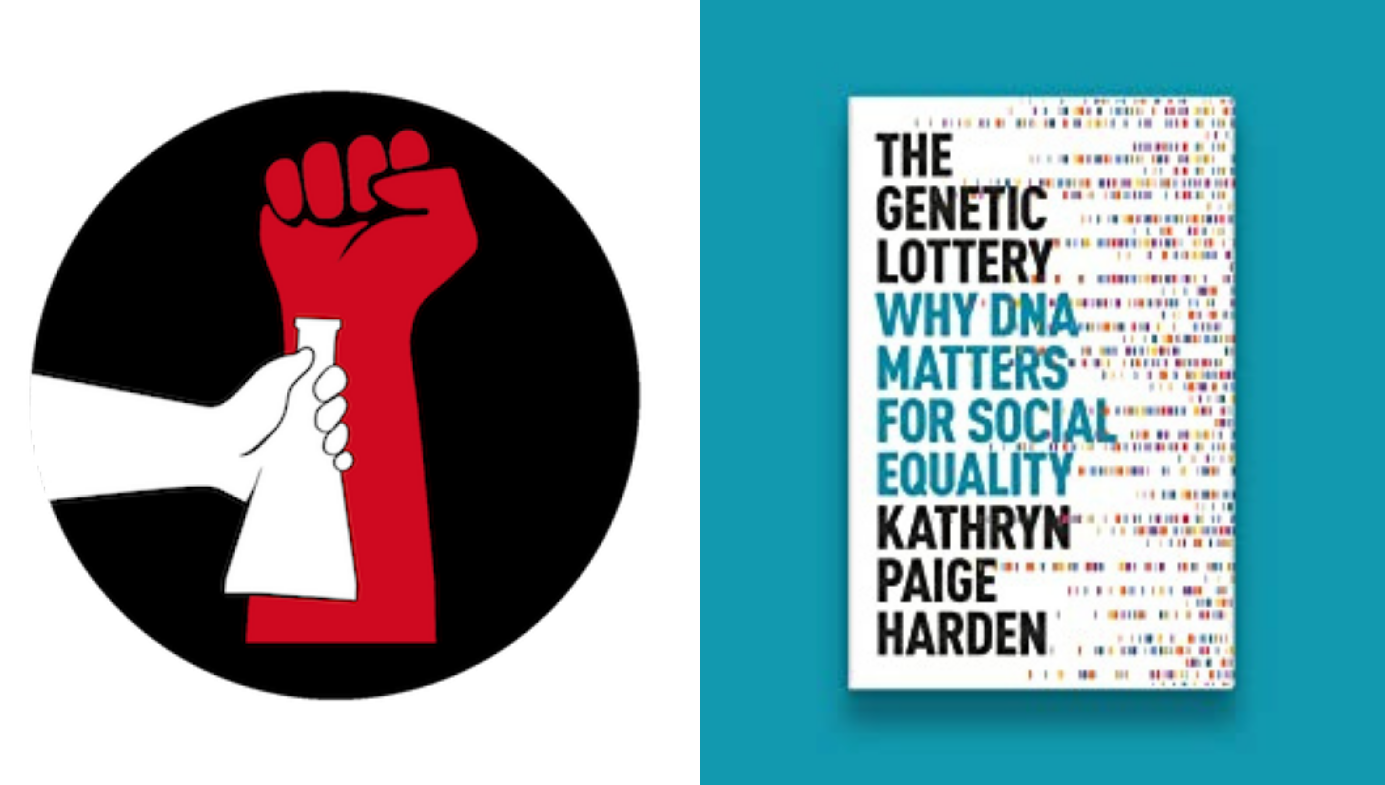Books
The Enduring Relevance of Czesław Miłosz’s ‘The Captive Mind’
It is into such pathologies that The Captive Mind delves, and why it has such application to our time.

Anyone watching the shenanigans at the New York Times of late could be forgiven for thinking it was a modern-dress staging of The Crucible or a Soviet purge. The US’s central “newspaper of record” (founded 1851) has recently, it seems, surrendered all editorial balance and autonomy.
Bari Weiss, the op-ed staff editor who quit her job there last August, said in a resignation letter that the paper’s editorial staff were effectively in power no longer: “Twitter has become its ultimate editor.” She spoke too of “constant bullying” by colleagues, a “civil war … between the (mostly young) wokes” and “the (mostly 40+) liberals” and a culture of “safetyism” now prevalent in the newspaper. “The right of people to feel emotionally and psychologically safe,” she wrote, “trumps what were previous considered core liberal values, like free speech.”
The defenestration of Donald McNeil, a veteran science reporter who’d been with the paper since 1976 and has been nominated for a Pulitzer for his coverage of the pandemic, is a case in point. And McNeil’s departure wasn’t the first time something like this had happened. Last summer saw editorial-page chief James Bennet forced to walk the plank after printing an op-ed piece by Senator Tom Cotton (Arkansas). Eight hundred NYT staffers complained, saying that Cotton’s op-ed put them in “danger.”
The radical breakdown of editorial authority at the NYT would be of limited interest if it didn’t have echoes elsewhere. From the forced resignation of editor Stan Wischnowski at the Philadelphia Enquirer last year for a badly worded headline to the sacking of Eton College teacher Will Knowland for free-speech related offences, one institution after another in the English speaking world seems to have capitulated to the new radical orthodoxy, with dissent punishable by enforced resignation or termination.

One book which might go some way towards explaining this phenomenon is Czesław Miłosz’s The Captive Mind. Published in 1953, it came soon after poet Miłosz (A future Nobel Prize Winner) fled from his native Poland. Here Stalinist Communism had been imposed at the end of World War II, a brutal process which forms the background of Miłosz’s book. The Stalinisation of Poland, which took several years to implement, was not so different from that of countries like Hungary or Czech Republic, for the blueprint was the same: the intimidation of political opponents, the breaking up—or swallowing up—of rival parties. Arrests, torture, falsified election results, and massive propaganda campaigns in all available media: these were the building blocks of the new regime.
Once Stalin’s men were installed in power, events followed a predictable course. “Patient and gradually increased doses of the doctrine,” in Miłosz’s phrase, were required to “bring a pagan population to understand and accept the New Faith.” Street names were changed, statues toppled or replaced, and terror spread through society like a solvent. Freedom of association was banned and societies—the scouts, national charities, even chess or fishing clubs—brought under the heel of the Communist Party. University professors were monitored by their students for divergence from the Party rulebook. Workers at all levels were sent for re-education classes in the new Marxist philosophy (the words “unconscious bias training,” 70 years later, spring to mind). It was a time, said the novelist Sandor Marai (Miłosz’s Hungarian contemporary), “when a spider’s web seemed to cover everything. The web grew thicker and stickier every day … now the textbooks and schools, now a decree on the public works … The spider’s web—invisibly but constantly spinning—thickened. And this Spider didn’t pause to rest. It cast forth its threads unflaggingly.”
And of course, Stalin, the “Giant Spider in the Kremlin,” paid particular attention to writers, those “engineers of human souls” whose independence was anathema and who must be brought to heel. They could render special service to the “Wise Leader and Teacher of Peoples” and had to be seen to support the New Faith with humiliating brio. Miłosz’s central question is why so many of his literary peers needed so little encouragement to comply. Given that it was an orthodoxy set to annihilate their craft, to come so firmly between writer and reader and dictate not only what they could say but how they could say it, it was more than a little strange.
It is into such pathologies that The Captive Mind delves, and why it has such application to our time. The same questions might be asked now of a host of professions: charitable boards, university presidents, school headteachers, awards bodies, public service broadcasters, publishers and, yes, editors and reporters at the New York Times. These form part of an ever-growing band who have allowed a utopian vision of the future, free of inequality or injustice, to trump principles like free speech and due process. With each step many have betrayed the very ideals which, we assume, dictated their choice of profession to begin with. Writers arguing for censorship, a National Trust you wouldn’t trust to preserve pickled onions, educational establishments sacking their workers for promoting debate and the free exchange of ideas. If it’s a surreal spectacle more like performance art than reality at times, it’s had horribly real consequences for those falling foul of it. And still, its onward march continues.
Miłosz wasn’t alone in searching for the reasons why, in his era, such abject surrender took place. In Czechoslovakia—a country which embraced Marxist-Leninism more readily than Poland and found itself waking up amidst ferocious mass-purges, show trials and executions—the writer Heda Margolius Kovály put it down to misguided idealism and guilt. The war, she pointed out, had shown the rottenness in mankind, but there was still that twitch of hope that avoided blaming human nature for the crisis. Better instead to damn the social order that had led to it and strive to make it anew. Many in any case felt “chosen by destiny” to sacrifice themselves. They were a “lost generation” weighed down by guilt over friends and family members they had lost to the camps. “For their sake,” wrote Kovály, “I had to build a world in which this could never happen again.”
But it was also the unbearable lightness of life in the West (as they saw it) which made so many choose the harder route. “Isn’t Christianity dying out in the West, and aren’t its people bereft of all faith?” asks Miłosz. “Well then, what can the West offer us? Freedom from something is a great deal, yet not enough. It is much less than freedom for something.”
All accounts are agreed on one thing—the war-ravaged peoples of Eastern Europe looked around for who could best help them reconstruct a shattered world, and they wanted to Build Back Better. It took years and thousands of denunciations, arrests and imprisonments before they learnt the bitter truth of Pascal’s maxim: man is neither angel nor devil, and his tragedy is that he who tries too hard to play the first too often ends up as the second.

Writing about the spread of groupthink in his world, Miłosz compared it to a narcosis. Those who gave in and took the drug ceased to question the new doctrine bearing down on them and became full of serenity and purpose: “Instead of writing the dissonant music of former days, they composed marches and odes. Instead of painting abstractions as before, they turned out socially useful pictures. But since they could not rid themselves completely of their former personality, they became schizophrenics.”
To prove his point, Miłosz gives us four case studies of writers he knew personally. Communism was to have a cataclysmic effect on all of them, for the period in which men and women of letters could simply retreat into their private lives and write “for the drawer” wasn’t to last long. Once the groundwork was prepared, Socialist Realism—that set of prescriptions forcing writers to create from the same style/content-sheets dictated by the regime—became not so much guidance as law. “Whoever is not with us is against us” hectored the Movement, and if silence wasn’t exactly violence it could certainly lead to plenty of it at the hands of the secret police. Editorial houses had been nationalised or shut down. Publication was dependent on joining the Writers’ Union, and belonging to the Union meant publishing incessantly on behalf of the regime—and to their specifications.
This provided a feast of opportunities to the mediocre for, as Miłosz points out, such rigid rules are fatal for great talents but a gift to minor ones. Hitherto lacking both material and literary style, they were suddenly spoon-fed both. Sandor Marai put it more colourfully: “The writer with shallow talent and inferior character promptly obtained a role from the Party, and he would now stroll about in the literary arena with condescending, affable majesty: blinking, he basked in the warmth of the assumptions that he was the new Writer Prince…”
Modern examples of this phenomenon, in the worlds of theatre, television and comedy, come immediately to mind.
Miłosz of course has his own examples of greatness brought low and mediocrity exalted. His first test-case is “Alpha the Moralist,” based (though never specified) on the Catholic writer Jerzy Andrzejewski, whose Ashes and Diamonds (1948) was filmed by Andrzej Wajda. A born leader, moral to the point of haughtiness, Alpha’s had his religious faith destroyed by the war and his patriotism with it: “His anger was directed against those who had brought on the disaster, that terrible example of what happens when blind loyalty encounters the necessities of History.” Like others of his generation, he’s concerned with building a new and fairer world from the (literal) ashes of the past. Marxist-Leninism, though far from ideal, has some of the appeal of his lost Catholicism – a desire for “forms: words and concepts, in short, textures.”
For a time the movement serves him well, and Alpha becomes a Cardinal of the new faith. He’s honoured and exalted, moving back and forth from Party headquarters to factory and collective farm to preach the new gospel. But it’s in his literary work he pays the price. Unable to write vividly without a sense of life’s tragedy, Alpha falls foul of the new regime and his work is filleted for wrongthink by “ten or fifteen dialectical experts.” His talent, once so prolific, is effectively dammed at source: “He tried to write differently, but whenever he denied something that lay in the very nature of his talent his prose became flat and colourless; he tore up his manuscripts.” Eventually, the erstwhile literary leader is given another name by his peers: the “respectable prostitute.” Alpha’s moral ascendancy is at an end.
Miłosz’s second test-case is “Beta the Disappointed Lover.” It’s based on Tadeusz Borowski, familiar to many from his Holocaust memoir This Way for the Gas, Ladies and Gentlemen (1946). Miłosz admits the brilliance of Borowski’s book but it’s when he offers those same talents to Communism that the problems start. Turning away from his fiction, desperate to prove his loyalty, Beta starts to churn out propagandistic articles any Party hack could write: “like a supersaturated solution, his writing crystallised, became thereafter transparent and stereotyped.” This doesn’t stop Beta in his tracks. There’s a kind of mania about him as he wrestles with the utopian aims of the movement he’s serving and the brutality he observes on the ground. “Are they not evil-doers who, when the planet enters a new epoch, dare to maintain that to imprison people, or terrify them into professions of political faith, is not quite nice? … History, History is with us! We can see its living, explosive flame!”
In 1951, at the age of 28, Borowski stuck his head in a gas-oven, and his frantic graphomania came to a stop. Those who saw him near the end felt that “the discrepancy between what he said in his public statements and what his quick mind could perceive was increasing daily.” Beta’s rude awakening from his doublethink is a warning to us all.
Miłosz’s third study is “Gamma the Slave of History,” based on the literary editor and Swiss Ambassador Jerzy Putrament. It’s a picture of a type present in all societies: the survivor-careerist in search of status and power. Putrament had originally been a nationalist and anti-Semite, an “ungainly, red-faced boy, coarse and boisterous.” But Communism offers him a route to respectability and belonging—almost. Unable to impress with his writing he becomes one of the literary gatekeepers, holding court from a gilt and marble office, entertaining “the most eminent representatives of Western art and science.” These visitors he charms with his exasperation at the ideology’s excesses, his ironic and weary distance from it. How human he seems! How “broad and civilised his outlook!”
Yet Gamma has made enormous moral compromises and betrayals, knows that every word he speaks is from someone else’s script, and his conscience is never at rest:
I am a liar, he thinks, and makes historical determinism responsible for his lies. But sometimes he is haunted by the thought that the devil to whom men sell their souls owes his might to men themselves, and that the determinism of History is a creature of human brains.
Our last portrait is “Delta the Troubadour,” based on the writer Konstanty Ildefons Gałczyński. Delta for Miłosz is an almost Chagall-like poet, his verse “a kaleidoscope of chubby baroque angels, magicians … falconry, astrologists prophesying the end of the world. His poetry was tragic and comic, senseless yet full of sense.” For a time he’s useful to the regime—“at this stage,” they mutter darkly, suggesting he’ll be jettisoned when no longer needed.
Instead, when the rules of Socialist Realism are imposed, it’s his own gift he has to sacrifice. His leaping imagination, the hallmark of his work, is now of no use to anyone. The “‘struggle against the spontaneity of the creative process’ had become the slogan, which meant that it was no longer enough to write on prescribed subjects; one had to write in a prescribed manner.” Delta’s kaleidoscope, it seems, is to be ritually smashed—over his head if necessary. In 1950, Gałczyński was the subject of bruising persecution by another poet at the Polish Writers’ Union, who accused him of producing work that was “petit bourgeois” and insufficiently lacking in revolutionary spirit. He was banned from publishing for 18 months, and died shortly after of a heart attack, aged 48.
The Captive Mind, published in 1953, has never gone out of print in the decades since. One can think easily of modern parallels to all four test-cases, yet it’s up to readers to decide if it has contemporary relevance or is just a curio of history. Nonetheless two quotes, chosen out of many, are worth pondering by ideologues with radical plans for us, or those who run panting for preferment behind them.
The first is bleakly clear-sighted and rings several bells. However glowingly the movement presents itself, the atmosphere of collectivism, public spiritedness, social justice, writes Miłosz, “is bad. It is an aura of strength and unhappiness, of internal paralysis and external mobility. Whatever we may call it, this much is certain: if Hell should guarantee its lodgers magnificent quarters, beautiful clothes, the tastiest food, and all possible amusements, but condemn them to breathe in this aura forever, that would be punishment enough.”
The second is a question to tax us all. Those wishing to adapt themselves to the New Faith and prosper within it can do so, Miłosz tells us, only by wrestling with their inner lives. They must confront past crimes, discard harmful artworks, stamp on their customary—and destructive—sense of humour, and find new, more responsible ways of relating to their fellow man. It’s a process marked by ruthless honesty, self-denial, personal sacrifice, “by weeding out the roots of what is irretrievably past. A cruel battle—a battle between an angel and a demon.”
“True,” concedes Miłosz. “But which is the angel and which is the demon?”
Czesław Miłosz’s The Captive Mind (1953) is available from Amazon, priced $12.50.






